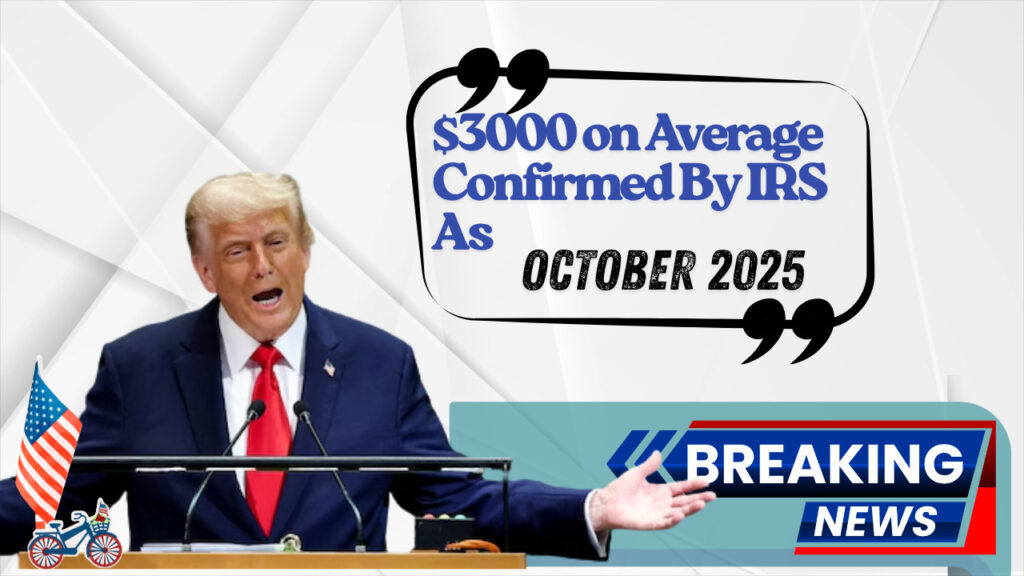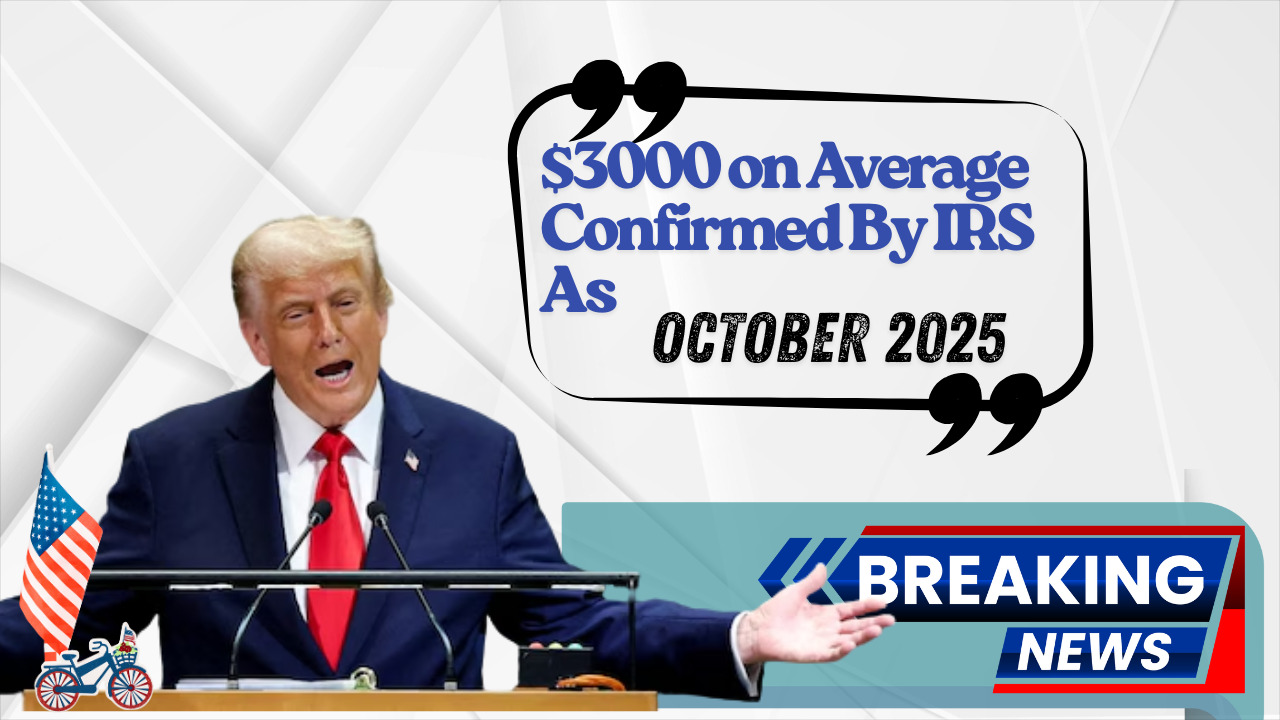$3000 on Average Confirmed By IRS As 2025 Tax Refunds:The Internal Revenue Service (IRS) has confirmed that the average tax refund for the 2025 filing season is approximately $3,324, marking a modest increase from the previous year’s average of $3,138.
This uptick reflects adjustments in tax credits, inflation, and changes in taxpayer behaviour. However, the actual refund amount varies based on individual circumstances, including income, filing status, and eligibility for various tax credits.
$3000 on Average Confirmed By IRS As 2025 Tax Refunds-Overview
| Article on | $3000 on Average Confirmed By IRS As 2025 Tax Refunds: Check Eligibility & Payment Credit Date |
| Average Refund | $3,324 for 2025 |
| Eligibility | Based on income, tax credits, and withholding |
| Refund Timeline | Usually within 21 days for e-filed returns |
| Payment Method | Direct deposit; paper checks being phased out |
| Key Advice | Use refunds wisely, adjust withholding if needed |
Understanding the Average Refund Amount
The reported average refund of $3,324 is based on data from early 2025 filings. It’s important to note that this figure can fluctuate throughout the year as more returns are processed. For instance, by mid-April 2025, the average refund had decreased to $2,945, influenced by the timing of filings and the inclusion of late-season paper returns, which often result in smaller or adjusted refunds.

Factors Influencing Tax Refunds
Several elements determine the size of a taxpayer’s refund:
- Income Level: Higher income can lead to higher tax liabilities, potentially reducing the refund amount.
- Filing Status: Married couples filing jointly may benefit from higher standard deductions and tax brackets.
- Tax Credits: Credits like the Earned Income Tax Credit (EITC) and Child Tax Credit (CTC) can significantly boost refunds.
- Withholding Amounts: Over-withholding throughout the year can result in a larger refund.
“A tax refund is not free money; it’s a return of your own hard-earned money. Plan wisely, and let it work for you.”
Eligibility for Tax Refunds
To qualify for a tax refund, your total tax payments through wage withholding or estimated payments must exceed your tax liability. Refunds are not guaranteed and depend on accurate filing and eligibility for credits. For example, claiming the EITC or CTC can increase the likelihood of a refund.
IRS Refund Timeline
The IRS aims to issue most refunds within 21 days of accepting an electronically filed return. Choosing direct deposit can expedite the process. Paper returns typically take four to six weeks or longer to process. For instance, e-filed returns submitted in May were paid by direct deposit between late May and mid-June, while paper checks followed one week later.
Transition to Electronic Payments
In an effort to reduce fraud and inefficiencies, the IRS is phasing out paper tax refund checks for individual taxpayers, with the transition beginning on September 30, 2025. This move aligns with Executive Order 14247 and aims to streamline the payment process. Taxpayers are encouraged to set up direct deposit or utilize digital payment methods to ensure timely receipt of refunds.
Expert Advice on Managing Tax Refunds
While receiving a tax refund can provide a financial boost, it’s crucial to approach it with a strategic mindset:
- Avoid Viewing Refunds as Windfalls: Consider them as a return of your own money, not a bonus.
- Adjust Withholding if Necessary: If you consistently receive large refunds, you might want to adjust your withholding to have more take-home pay throughout the year.
- Utilize Refunds Wisely: Consider using refunds to pay down debt, build an emergency fund, or invest in long-term savings.
Final Thought
The 2025 tax season reflects a slight increase in average refunds, influenced by various factors such as tax credits and withholding patterns. Understanding the elements that contribute to your refund can help in planning and managing your finances effectively. Staying informed about eligibility requirements and processing timelines ensures that you can maximize your refund and utilize it to achieve your financial goals.
FAQs for $3000 on Average Confirmed By IRS As 2025 Tax Refunds
How do I check my tax refund?
Use the IRS “Where’s My Refund?” tool or the IRS2Go app.
Will I get a paper check?
No, the IRS is moving refunds to direct deposit only.
How can I adjust my withholding?
Submit a new Form W-4 to your employer.
What if I haven’t filed yet?
File as soon as possible to claim any eligible refunds.
Can I still claim credits if filing late?
Yes, eligible tax credits can still be claimed even after the deadline.






